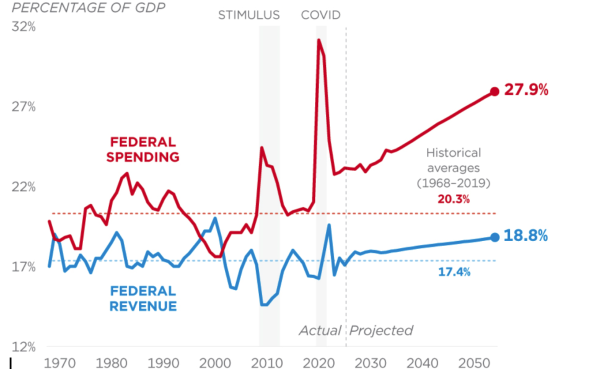Pittsburgh Shooting Implores Students to Fight for Gun Regulations
Following a year of deadly shootings, the recent attack at a Pittsburgh synagogue marks a point of no return for those advocating for tighter gun control. The shooting occurred on October 27th at the Tree of Life synagogue in Pittsburgh, Pennsylvania, leaving eleven dead and seven injured. The shooting, the deadliest attack on the Jewish community in the U.S., spread fear and concerns across the country as it illustrated how anti-Semitism and other forms of hate still persist. According to ABC News, there have been a total of 314 mass shooting incidents in 2018 alone. This trend is one familiar to students, and many tire of the persistence of gun violence, especially when a specific minority group is targeted.
“My first thought was, ‘Great, another shooting,’” said Jewish student Tommy Rankin. “There’s been a large amount in the past couple of years, and it wasn’t very surprising to me.”
However, what set this shooting apart from others was that it was directed towards a specific group of people: Jews living peacefully in the U.S.
“It was the first shooting that I can remember that was on Jews, which was shocking,” said Rankin. “It was very upsetting that one of the victims was actually a Holocaust survivor. That got to me because the chances of having to go through one anti-Semitic attack to another just shows how important this issue is.”
For Jews living in America, this attack opens up deadly possibilities towards how others can incite violence on the Jewish community.
“When I first opened the news and saw that the shooting happened my initial thought was ‘My parents are at a temple right now,’” said Jewish student Elizabeth Wise. “That scared me because I imagined that it could happen again and anywhere, even in places we thought were safe.”
Many believe these attacks to be the result of a lack of gun legislation, and urge for the government to enact changes in order to prevent mass shootings. Following the 2018 Parkland Shooting and March for Our Lives movement, these ideas have only grown.
“The government hasn’t taken much action on gun violence yet,” said Wise. “There’s some gun legislation that everyone could agree on, and there needs to be some sort of action by the government in order to save more lives.”
The varying views on gun control are part of a larger debate on what specifically would stop gun violence.
“I think we should start with what’s called Common Sense Gun Legislation: stricter background checks and banning bump stocks,” said Wise. “The ideas that a lot of people have had for legislation need to be taken seriously.”
One of these views is that the use of a gun itself is not the issue, but rather that mental health plays a role in those who enact acts of violence against others.
“The problem is that if there is someone that violent and determined to kill, it’s hard to stop it if they haven’t done anything before,” said Rankin. “If there are people who have had crimes with guns before, it’s easier to run background checks and stop future attacks. This shooter had no felonies or crimes, which leads to a lack of prediction in the attack.”
In fact, the inability to predict these shootings makes them even more terrifying to the public, and many are constantly on guard for fear of being involved in a random attack.
“As long as there are more than 10 people in the world, there could be violent attacks,” said Rankin. “I think that they are a part of life. There are people in a lot of pain right now that need help but don’t get it, and they become more angry.”
Even though the amount of shootings have risen in recent years and education about guns has increased, many believe that society still supports the use of guns.
“Although most people will stop at ‘lack of gun control,’ I think it’s something rooted deeper within our culture and education,” said gun-control advocate Athena Qiu. “There is definitely a lot of hype around guns in pop culture, whether it be the songs we listen to, movies and everywhere around us.”
Some believe that this perpetual approval of guns may be a reflection of certain beliefs demonstrated by the leaders and influencers of the U.S.
“When the leader of our country constantly spurts out hate slurs or discriminative statements, it suddenly instills this idea that it’s okay and normal to be a racist, sexist or target any group of people,” said Qiu.
In tandem with constant media coverage, the attention garnered by shootings and other acts of terror could inspire other prospective shooters.
“I think that an act like that can inspire other people with malicious intentions,” said Wise. “On the other hand, it makes people more aware of the issues, like how anti-Semitic attacks still happen today.”
Additionally, the persistence of shootings cause for a greater panic among the public, especially when people are in public spaces.
“It could happen to anyone,” said Wise. “I just read about the Thousand Oaks shooting in California, and it is becoming consistent. We now have to think that this could happen to anyone, anywhere.”
Although gun control advocates and gun owners disagree on how to solve the issues surrounding mass shootings, all parties have one central goal: to find common ground in order to stop mass shootings from happening.
“Solutions take time,” said Qiu. “However, I believe immediate solutions put in place together with better regulations with firearms, like who can purchase and possess, can truly help us turn this tide on gun violence.”




